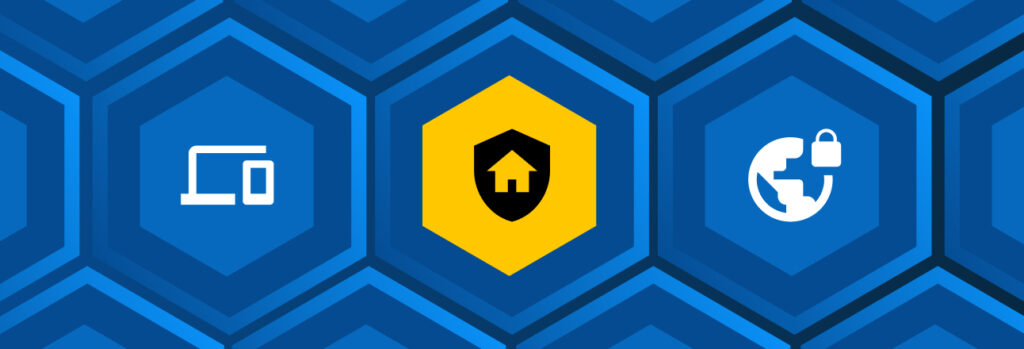Password hygiene tips to follow include using unique passwords, enabling Multi-Factor Authentication (MFA) and keeping your passwords safe in a password manager. Password hygiene encapsulates the
Updated on October 4, 2023.
With organizations now offering remote or hybrid working options, for many people, their workspace is at home. Your team needs to know password hygiene best practices to ensure their at-home work environment is secure and protected. To improve password hygiene for remote and hybrid workers, organizations should enforce the use of strong and unique passwords across all accounts, ensure that employees enable multi-factor authentication and implement a zero-trust security model.
Continue reading to learn more about password hygiene and the best practices for remote employees.
What Is Password Hygiene?
Password hygiene refers to the best practices and habits that individuals, employees and organizations should follow to maintain the security of their passwords and online accounts. Good password hygiene starts with strong passwords to prevent cyber attacks, virus infections, social engineering attacks, account takeovers and more. Employees need to stay disciplined in practicing good password habits to reduce the risk of falling victim to cyber attacks.
The Importance of Password Hygiene for Remote Workers
Password hygiene is necessary for remote workers because it plays an important role in ensuring the security of both employees and the organizations they work for. Employees who are not knowledgeable about password hygiene can pose a risk to themselves and their company. People play a large part in data breaches and other security incidents, whether by falling victim to stolen credentials, phishing or simply human error. In fact, 74% of breaches involved a human element, according to Verizon’s 2023 DBIR.
Password Best Practices for Remote Workers
Organizations should follow these recommendations to ensure that their remote workers implement strong password hygiene.
1. Enforce good cyber hygiene practices
Enforcing good cyber hygiene practices means setting policies to standardize security rules in the workplace. Each employee should be equipped with up-to-date software and tools such as a password manager. Password managers offer several benefits that help with your team’s password hygiene, including creating strong and unique passwords for every account and storing passwords and other sensitive information in an encrypted digital vault.
In addition to strong passwords, employees should follow good password practices to strengthen their password security. Some tips to follow:
- Don’t reuse passwords. Reusing passwords makes it easier for cybercriminals to access multiple accounts with only one set of credentials.
- Don’t use personal information to create passwords. Create passwords without any connection to you, your team or your organization. Cybercriminals often guess passwords using personal information such as names, birthdays and other important dates. The most secure passwords are at least 16 characters long and contain random strings of upper and lowercase letters, numbers and symbols.
2. Require Multi-Factor Authentication (MFA)
Multi-Factor Authentication (MFA) is an authentication method that requires users to present at least two forms of identification before they gain access to their account.
Before logging in to an account, MFA requires users to provide an additional authentication factor besides their credentials, such as:
- Inputting a code retrieved from an authentication app
- Scanning their face or fingerprint
- Answering a security question
Even if threat actors have a working set of login credentials, they can’t access the account without this additional authentication factor.
3. Watch out for phishing scams
Your employees are the first line of defense for protecting you and your company. Take the time to train your team to prevent them from being fooled by cybercriminals.
Before clicking links inside an email, look for signs to make sure it’s not a phishing email. Some common giveaways include:
- Frequent typos: Most credible brands and companies proofread emails before sending them to recipients. Grammar errors and misspelled words are commonly found in scam emails.
- Suspicious email addresses: Send it to the trash can if the email address doesn’t match with the company domain name.
- Unusual request: Don’t be fooled. It is unlikely that a Nigerian prince will ever give you their entire fortune in return for crypto or an iTunes gift card.
- A sense of urgency: The sender expects their victims to make rash decisions and act quickly. Don’t fall prey to threats based on fear.
4. Develop a zero-trust approach
A zero-trust approach assumes that every user or device could be compromised. Every person and machine must be verified before gaining access to a network. Organizations can prevent cybercriminals from gaining access to their network by implementing a zero-trust security model.
A zero-trust architecture also prevents lateral movement through network segmentation. Even if a cybercriminal were to gain access through one unauthorized access point, the continuous verification required by the zero-trust model would prevent the cybercriminal from moving laterally through the network. Segmentation aids in reducing the amount of damage that can stem from an attack.
5. Use a remote desktop manager
Using a remote desktop manager allows your team to access their work desktops from anywhere while still being protected by the company firewall. An agentless option such as Keeper Connection Manager provides you with session recording, multi-user session sharing, privileged session management and more.
Use Keeper To Protect Remote Work Environments
Password hygiene is important for remote workers as it safeguards sensitive information protected by passwords. Using Keeper Security to protect your remote work environment not only secures your organization’s accounts but also helps support good cybersecurity practices. Whether you require a password manager or a remote connection manager, try Keeper free for 14 days to see how we can keep your cybersecurity posture strong.
 Password
Password 
